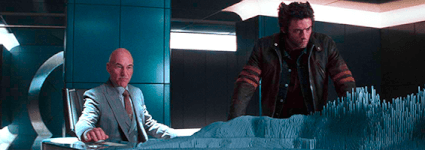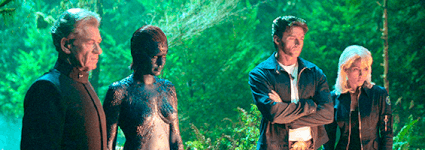Chronologically speaking, ‘X-Men Origins: Wolverine’ (which takes place between the late 19th century and the 1970s) is the first film in the original mutant timeline in cinema – although, technically, ‘X-Men: First Class’ could fit into both. There are, in any case, some chronological inconsistencies. As the name suggests, the film tells the origin of James Howlett, who the world would later know as Wolverine and those closest to him would call Logan. One of its greatest merits is Hugh Jackman's charisma, but it's not enough to compensate for the script's flaws and the studio's poor choices – like turning Deadpool into a generic villain, for example.
The first film to be released set the aesthetic and language for the franchise – and superhero movies – for quite some time. It was groundbreaking in showing that comic book characters could come to life, nurturing an entire new generation of fans. In the story, we are introduced to Xavier's School for Gifted Youngsters and its hidden force, the X-Men, a team that uses their superpowers to contain anyone who threatens the balance between homo sapiens (the "normal" humans) and homo superior (the mutants). The cast is stellar: Patrick Stewart (then known for ‘Star Trek: The Next Generation’), Ian McKellen, Halle Berry, Anna Paquin (who won an Oscar at just 11 years old), and the then-unknown Hugh Jackman. Of course, watching it with today's eyes, ‘X-Men’ shows its flaws more clearly, but it's still a solid action movie.
A direct continuation of the previous film, in which Wolverine was integrated into the group. With no memory of his past since the events revealed in ‘X-Men Origins: Wolverine’, Logan sets out to find the truth in Canada. Additionally, the production further expands the mutant universe with new characters and conflicts. It is, by many, considered the high point of the franchise's first trilogy.
This is where the first X-Men trilogy loses its way. Due to backstage problems, director Bryan Singer left the production and was replaced by Brett Ratner (‘Rush Hour’). The turbulent environment is evident in the final work, which loses focus and abandons the characteristics that made the previous films successful. Nonetheless, the film compensates for this deficiency with even grander special effects.
The second solo Wolverine film takes place some time after ‘X-Men: The Last Stand’. It is certainly a redemption of the character after the failures of ‘X-Men Origins: Wolverine’ and the last mutant team movie. Directed by the competent James Mangold (‘3:10 to Yuma’), the plot is loosely based on ‘The Wolverine’, a comic book miniseries written by Chris Claremont and illustrated by Frank Miller in the 1980s. Despite its ending, which relies on superhero movie clichés to conclude the story, it is an interesting film.




